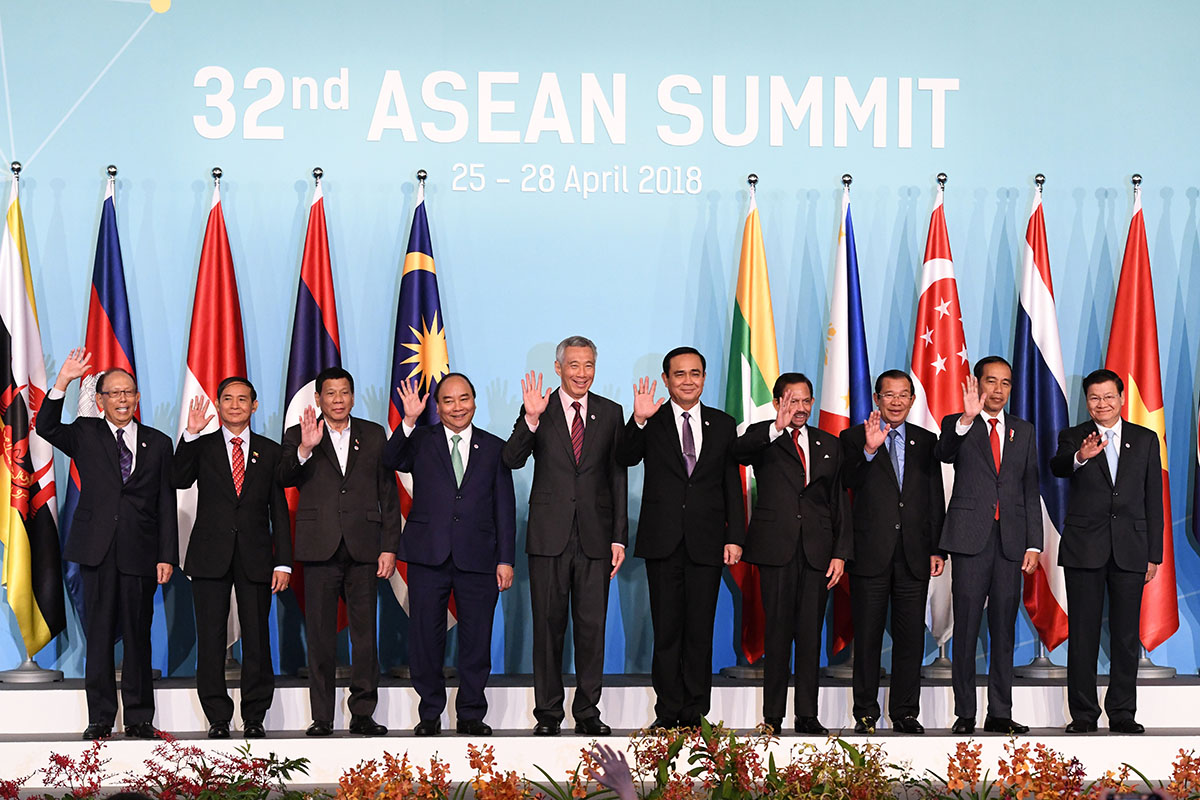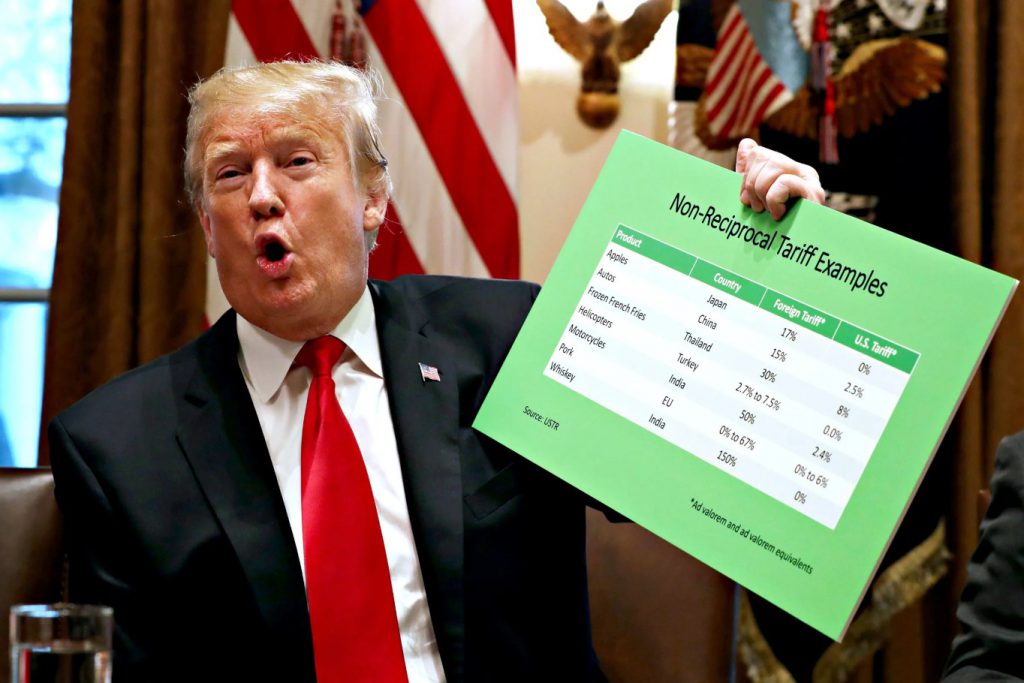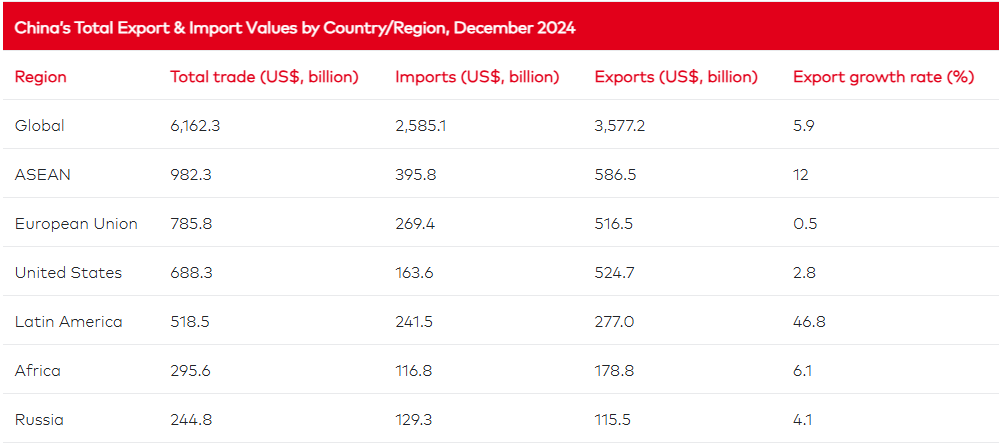Trump’s 125% Tariff Could Push China to Strengthen Alliances with ASEAN and Beyond

Trump China tariffs have skyrocketed to 125 percent right now, potentially forcing China to pivot toward stronger ASEAN and BRICS trade relationships. This dramatic tariff increase, which was implemented on April 9, 2025, follows China’s 84 percent hike on US goods just days ago and signals a major shift in US-China relations that could have lasting effects.

Also Read: Global Tariffs Paused, But Trump Slams China with 125% Hike
Trump’s Tariff Reshape Global Trade & Boost China’s ASEAN & BRICS Relations

The US currently ranks as China’s third-largest trading partner, behind both the ASEAN and the EU. ASEAN trade with China has actually reached a whopping total of about $982.3 billion in 2024, with exports growing by about 12 percent compared to just 2.8 percent for US exports. This positioning essentially gives Beijing some flexibility in responding to Trump China tariffs at this moment.
Chris Devonshire-Ellis, an expert on China’s global trade relations, was clear about the simple fact that: “China has invested an estimated US$1.75 trillion into its Belt and Road Initiative – specifically designed to secure multiple supply chains to China to cater for any future supply chain problems.”
Also Read: 50 Countries Eye De-Dollarization & Reduce US Dollar Dependency
BRICS Alternative Gaining Momentum

The China-BRICS trade right now exceeds $1 trillion annually, and this figure will continue to grow exponentially. By increasing exports to non-US markets by around 8.5 percent yearly, China could possibly absorb its entire US export volume within just two years or so. Not bad, right? Trump’s China tariffs may actually accelerate this transition, similar to how Russia redirected EU trade within two years after the sanctions were imposed.
Also Read: De-Dollarization: 6 Global Alliances Race to Ditch the US Dollar
Long-Term Strategic Implications
Analysts project the US economy to grow around 1.7 percent this year, while China expands at 5 percent and India grows even faster at 9 percent. ASEAN relationships offer immediate alternatives for Chinese exporters affected by tariffs and other trade restrictions.
Devonshire-Ellis suggests:
“With Beijing wanting access to trade stability and not Trumpian unreliability, that is more likely to become a new trend than not. China’s export growth, the emergence of the BRICS and global consumer markets, and the new supply chains opening up with the Belt & Road Initiative all point to China’s extensive planning about to come into timely operation.”
Also Read: Two Economic Giants Team Up to Shatter US Dollar Dependence with 6 De-Dollarization Projects
The most significant concerns about Trump China tariffs may not be their impact on China but rather on the United States itself, as China continues building and expanding ASEAN and BRICS trade relationships that could permanently reshape global economic patterns for years to come.
Blockchain entrepreneur Karnika E. Yashwant (KEY) elected into Liberland’s Congress

Karnika E. Yashwant, better known as Mr. KEY, has been elected into the Congress of Liberland, a microstate claiming unclaimed land between Croatia and Serbia.
This places the blockchain entrepreneur inside the legislative body of what calls itself “the world’s first decentralized sovereign nation” to work alongside Prime Minister Justin Sun.
The announcement comes as Liberland, which was founded on April 13, 2015, by Czech economist and politician Vit Jedlička, continues to build its identity around blockchain infrastructure, individual freedom, and voluntary governance.

KEY plans to push blockchain hard at national level
Mr. KEY, who became India’s youngest CEO at 16, is now tasked with helping shape Liberland’s future by advancing blockchain-based legislation, streamlining citizenship processes, and expanding the country’s presence on the global stage.
He is expected to appear with President Vit Jedlička on April 23 at the Blockchain Life Forum in Moscow, where both will present their model for decentralized governance.
The entrepreneur first launched his career at 14, asking “why not?” and hasn’t slowed down since. He went on to build the company KEY Difference, which has supported blockchain startups for over a decade.
“Systems either liberate people or control them. Liberland represents the ultimate test of whether we can build systems that maximize freedom,” KEY said. “Most people struggle to implement blockchain in a single business process. We’re implementing it as the foundation of an entire state. That’s revolutionary.”
The founding idea of Liberland was to create a country with minimal state interference and maximum individual freedom, supported by blockchain and AI instead of layers of government bureaucracy. Vít said the mission came from his frustration with over-regulation and taxation across traditional countries. “The amount of damage coming out of over-regulation and over-taxation is too intense,” he said. “I realized starting a country could be the most effective way to inspire large-scale change.”
That frustration turned into a legal and technical structure. Liberland already uses blockchain to run elections, maintain registries, and manage judicial processes. President Vít said the republic has started using AI-based judges for early-stage arbitration and expects the legal system to stay years ahead of traditional courts.
“Our legal system is already integrating AI-based judges for preliminary arbitration,” the president said. “The world will see this shift eventually, but we are at least three to four years ahead.”
Cryptopolitan Academy: Coming Soon - A New Way to Earn Passive Income with DeFi in 2025. Learn More

